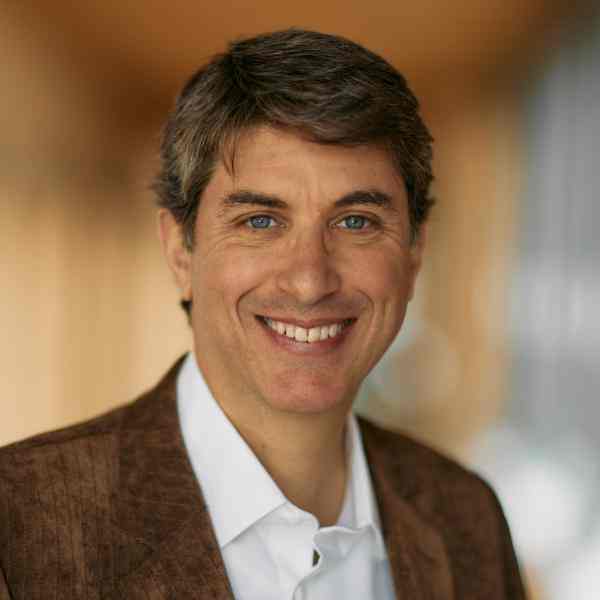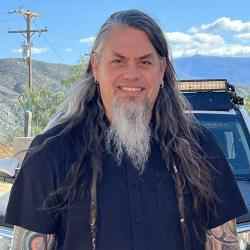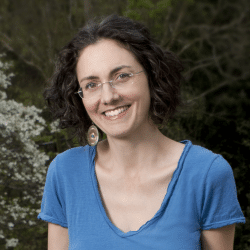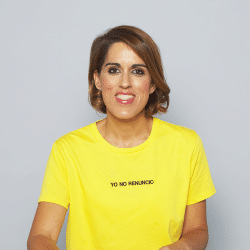Introduction
Alejandro Marius breaks the vicious cycle of poverty through his organization Trabajo y Persona (Work and People). He promotes the development of entrepreneurs’ abilities and their training in offices for productive work. He makes an impact on excluded women and youngsters who don’t work or study and who don’t have any opportunities of overcoming their situation. Alejandro develops an ecosystem linking these Training Centers with enterprises to create an inclusive business model to strengthen their sustainability. Through his own methodology called Emprender 360, which innovatively trains facilitators from Training Centers on different offices to give their students the opportunity to empower themselves in entrepreneurship and self-employment, with opportunities that make a difference by having a job that stops poverty and gets them away of crime, earlier pregnancy, imprisonment and death.
The New Idea
In Venezuela, 20% of youngsters between 15 and 19 years old do not study or work; this means that nearly 507.000 people need to be empowered promptly and it requires the design of specific policies for their attention. The Venezuelan educational system, particularly its public system, does not offer work preparation. Just 44% of young people aged 15 years finish high school. (ENJUVE 2013-UCAB).
Alejandro has conceptualized and successfully implemented the Empender360 model to train instructors. Training programs not only cover issues related to the development of a profession, but also include: personal valuation of work, environment and the country. It provides knowledge and experience for the execution of an enterprise or a self-employment project for social and economic development and develops skills for interaction with customers, suppliers, work teams, family and social environment.
His model starts with the detection of job opportunities in the labor market. And once detected, the technical training begins. Alejandro operates through existing technology centers that weren’t paying attention to the market needs. This way, his methodology helps those centers to train youth focusing on the market needs; indeed it is done in alliance with the market.
It’s worth noticing that the Emprender360 replica is performed in a combination of classroom and virtual activities, using a distance education platform (Campus360) that has begun its development with the support of one of his allied companies (Masisa of Venezuela). Systemic change is sustainable and articulated in an entire ecosystem that starts in the instructors training, which also affects the sustainability of the training center, then the training of young entrepreneurs, connected with the needs of the productive-business sector. It gives support to the emerging enterprises and creates a network of centers, then with this model influences public education and work policies giving opportunities to thousands of excluded and vulnerable young people.
The Problem
There are no public policies or laws for training or jobs systems for youngsters and women who have completed high school or have dropped out of the formal education system. Additionally, the social mind set says that going to college is necessary for progress. Training skills initiatives are almost entirely subsidized by the state and are not aligned with companies’ or market’s needs. In Venezuela a state mentality has been promoted through years, which the person needs to rely on the State, minimizing their role in solving their problems and seeking for development opportunities. According to the results of 2013-UCAB ENJUVE it is estimated that only 31% of young people was studying and only 35% was working. 11% kept both activities simultaneously, while 23% is classified under the category "neither work nor study" which means that more than 1 of 4 youngsters are doubly excluded, being outside the education system and outside of the work market and therefore, in a situation of vulnerability to other risks that compromise their development.
Training Centers that could cover this deficiency are poorly articulated with the needs of the labor market and have few resources to update their training. In addition, the work’s law reform introduced by the government recently increased the cost of hiring employees by at least 39% over the previous cost, making it even more difficult to integrate young people into the work market.
Also, work devaluation, in addition to the fact that informal labor culture with a practice that even involves the whole family, has worsened in the last three years, given the food scarce phenomenon and its consequent reselling of products purchased in supermarkets and then resold in the "black market" at 300% of its value. This tendency links the value of working with two parameters: mediocracy and little effort for a big profit.
The Strategy
With background experiences in social work in Italy, and having collaborated with NGOs in Spain and Italy, and also being sensitive to the work and education issues, besides seeing the disconnection between education and the labor market, the low awareness of sustainability of social work; Alejandro decided to found a work program corresponding to those needs. This was born on February20, 2009 and named Trabajo y Persona with the mission to restore both the hard work culture in Venezuela and the person’s dignity.
Alejandro has conceptualized and successfully implemented the Empender360 model that proposes an innovative craft and customize the components of entrepreneurship and human development to every trade, in order to benefit young men and women between 18 and 30 years (in some trades like Beauty and Chocolate manufacturing), both groups from popular neighborhoods in cities or in rural areas, who have conditions of social vulnerability: unemployment or unstable jobs, breadwinners that did not pass 2nd or 3rd level of academic studies.
This model has some innovative features:
o Involves the company and its partners in an inclusive business model, and even in job training.
o Innovates in updates on the relevant market trades. For example: Entrepreneurs of furniture, with a Modern Carpentry application to facilitate graduates the starting of enterprises with minimal requirements to begin (with the support of the company MASISA and changing the curriculum of CECAL) Entrepreneurs of Beauty (with the support of L'Oreal), Satellite TV Installers (with the support of Fundación Telefónica), Mechanics (supported by Ford), Creation of chocolates (supported by Chocolate El Rey).
o Includes an assistance module (non-existent in the country) to reduce mortality factors in Venezuelan business through:
▪ Tutores360: Channels corporate volunteering to involve company employees in the process of accompanying graduates.
▪ Crédito360: A mechanism for microcredit education for entrepreneurs to ease them the access to microenterprise or corporate banking (which requires at least one year of experience in entrepreneurship and "guarantors").
▪ Professional development in the trade and in entrepreneurship (trends, innovations, specializations).
▪ Basic services to entrepreneurship for access to raw materials and work tools.
▪ Internship on enterprises of each sector: craft modeling practice, labor discipline, etc.
o Includes a distance learning platform (Campus360) that supports the replicability process and training centers nationwide alliances. This technology allows the empowerment of trainers in the Emprender360 model. The main contents of each area are:
▪ Pedagogy: Innovations, topic updates, use of new techniques.
▪ Technology: using and applying distance education, mobile technology.
▪ Entrepreneurship: its meaning and its roles, skills and abilities (from communication, customer service to management issues and costs, marketing, digital marketing), management tools (supervision, leadership, motivation, laws).
▪ Human Development: work honor, teamwork, citizenship, and self-knowledge.
▪ Technical skills training: chocolate manufacturing, modern carpentry (Design and assembly of furniture), hair styling, auto mechanics.
Alejandro recalls one case that has impacted him: Jennifer Tovar, a mother of six children that lives in Valles del Tuy, who supports her family doing domestic work, and she took the course of Beauty Entrepreneurs. Then she started working on pedicure and manicure. To go to the classes she had to travel 4 hours from her city to Caracas and back. Later she transformed a mirror in her house in a styling home-station while working in Caracas. Currently, she is aspiring to a Credit360.
Another striking case is Osderlys Fernandez’. She lives in Petare and prefers to have an honest job to become an example for her autistic child instead of selling scarce products in the black market, which would give her more income, but poor values for her child.
Between his allies, Alejandro has companies as Masisa, L'Oreal, Movistar and Telefonica Foundation, Ford Motor and KAKAO. He also has alliances with Pirelli, Venoco (now in government hands), Millar Filters, EPA Binational Chambers (French and Italian). Other allies that have funded projects are CISOR, Venezuela Sin Límites, EU, Icaro, Cenro Lyra, companies that support entrepreneurs (Citibank award, where a graduate won second place nationally). Currently he is developing relationships with: Chocolates El Rey, Chocolates La Mucuy (Merida), Bangente, PROSEIN, Bticino, Food Kelly's and Excelsior Gamma.
Some of his results:
- The creation of added value to the Training Centers, Universities and Enterprises allies on the programs:
o Has promoted best practices in 17 training centers nationwide: schedules in their classrooms, improved facilities as a result of support from allied companies, diversify.
o The creation of the production unit in INVECAPI Centro Jesús Obrero (INVECAPI): Brake rectification with support from Ford Company.
o Has influenced universities to generate Diploma Courses for improvement in skills: Diploma in Management of Tourist Establishments (USB), Diploma of Master Carpenters (IUPMA) plus the certification of trainers through the Campus360 platform, and opening a LUZ Extension Unit at Don Bosco Technical School Agropecuaria La Guajira (area inhabited by indigenous Venezuelans). Allied universities: USB, UCAB, UMA, UNIMET, IUPMA, LUZ.
- People benefited from Entrepreneurship Program in trades since 2011 to 2014: So far benefited 1,440 people distributed in: 780 women and 520 young people who had participated directly in the courses and 140 trainers. 700 women in the field of chocolate, 80 women in the hairdressing sector. Youth: satellite dish installers, auto mechanics and modern woodworking (120 people). Organic farmers: 400 youngsters, Trainers (30) and Workers (50).
- Instructors training through mixed methodology in Empreder360, through Campus360 national platform in 2014: 60 instructors in nationwide training centers (Guacara, Barquisimeto, Maracaibo, Maracay, Cumana, El Tigre, Bailadores y Merida).
- Efforts have been made accompanying the graduates based on the needs that have arisen in their enterprises, but he does not have an information system that allows this follow up systematically.
To measure the impact he is developing three actions:
o Internal processes of measurement in training programs:
o Socioeconomic information from participants.
o Changes in the personal development of participants.
o Reagents toward entrepreneurship (5: resilience, self-knowledge, achievement orientation, accountability, strategic thinking).
o Assistance ranges themes score business plans.
o Surveys for post program’s needs.
o Registration forms, interview guides, late returns, payroll needs, Life Stories, micro credit analysis, tutoring needs.
o The IDB approved a project for a systematization of the experience and measuring impact on furniture and hairdressing trades, which also have the support of L'Oreal and Masisa. This will have an information system for monitoring, measuring instruments impact of these programs and documentation inclusive business model for replication in other countries in the region and sectors of the economy. The project is awaiting a letter of no objection from the Venezuelan government.
o An undergraduate thesis at the School of Social Sciences at the UCAB to measure the impact of Chocolate Entrepreneurs program in Miranda State, to be held in 2015.
Alejandro in the next three years wants to: A network with 20 training centers, at least one in each state of the country, in vulnerable places, demonstrating the relevance of the model proposed by Trabajo y Persona in specific sectors of the economy. It is expected that the model Emprender360is applied in at least 4 occupations per center of the 20 centers across the country for a potential 2,400 participants annually, in states where they are already working with partners (INVECAPI, Fe y Alegría, Youth and Work, Parishes , APEP Centers) in training programs (Gran Caracas, Estado Miranda, Carabobo, Zulia, Mérida, Bolívar, Lara, Aragua, Bolivar, Sucre, Anzoátegui) national level where the young person's first work experience and performance converge and education a trade.
In that way, to keep replicating and expanding training centers in vulnerable places, it is proposed as indicators of success to influence systemic change and provide opportunities for these young people and thereby reduce crime rates, teenage pregnancy, increase employment rates with new entrepreneurship at the base of the pyramid, to reduce unemployment, and to improve family incomes. Alejandro raised his level of public impact by influencing the Pensum endorsed by the Ministry of Education for entrepreneurship training programs associated with trades. On the Adoption of inclusive business models in companies that systematically support skills training and entrepreneurship in their value chain. Including economic resources of their CSR and corporate volunteering and that universities provide expertise in training and in modeling and measuring social impacts of the graduates of these trainings.
Internationally, there are organizations related to Social Development: Colombia (Centro San Ricardo Pampuri, Bogota), Mexico (Youth Education Support, Campeche), Brazil (Centro Virgilio Reci, Belo Horizonte), Argentina (Casa Padre Mario Pantaleo) and Peru (CESAL and University Extension Headquarters Sapientae, Lima) who have expressed interest in conducting joint projects. For the Furniture Entrepreneurs program, Alejandro is in dialogues with the company MASISA to replicate this model in other countries.
The Person
Alejandro came from Uruguay to Venezuela at six years old in 1978 with his family. Since young he was fascinated by mathematics and physics and decides to teach and help their peers in high school. Then, in college, to pay for schools, he continues to teach high school students and adults out of school. Over time, in addition to tutoring, he began in San Antonio de los Altos the firsts tuition for universities admission exams.
In 2000 he became a quadriplegic for 6 months, and had to re-learn all the motor skills. That moment helped him to reevaluate his life, appreciate his family and friends and become more involved in helping others. Alejandro is an Electronic Engineer and Master in Information Systems, with a successful career in 1994 as Project Manager and Account Manager in telecommunications projects. In 2008, with 37 years, he began to wonder about his professional approach and his desire to help people. In 2009 he decides to support job training for vulnerable populations to help young people and women with no opportunity to overcome poverty and to break with the model of subsistence.




